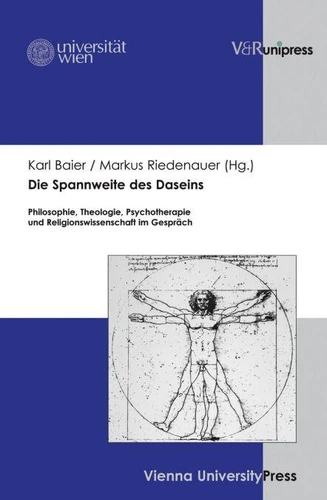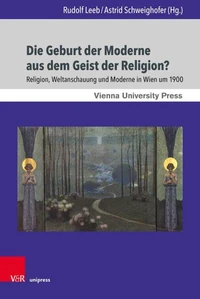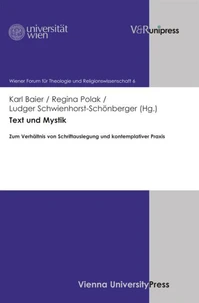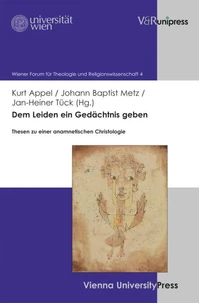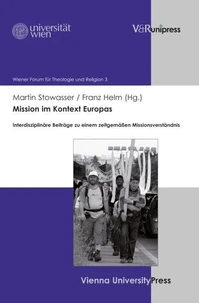Die Spannweite des Daseins. Philosophie, Theologie, Psychotherapie und Religionswissenschaft im Gespräch
Par : ,Formats :
Disponible dans votre compte client Decitre ou Furet du Nord dès validation de votre commande. Le format PDF est :
- Compatible avec une lecture sur My Vivlio (smartphone, tablette, ordinateur)
- Compatible avec une lecture sur liseuses Vivlio
- Pour les liseuses autres que Vivlio, vous devez utiliser le logiciel Adobe Digital Edition. Non compatible avec la lecture sur les liseuses Kindle, Remarkable et Sony
 , qui est-ce ?
, qui est-ce ?Notre partenaire de plateforme de lecture numérique où vous retrouverez l'ensemble de vos ebooks gratuitement
Pour en savoir plus sur nos ebooks, consultez notre aide en ligne ici
- Nombre de pages439
- FormatPDF
- ISBN978-3-8470-0306-9
- EAN9783847003069
- Date de parution16/07/2014
- Protection num.pas de protection
- Taille2 Mo
- Infos supplémentairespdf
- ÉditeurV&R Unipress
Résumé
This anthology deals with the work of Augustinus Wucherer-Huldenfelds, one of Austria's most prominent philosophers of the late 20th and early 21st century. His thinking sets out from initial human experience by way of a newly conceived phenomenological hermeneutical method. Wucherer-Huldenfeld develops a fundamental ontology that takes European conceptions of 'thinking of being' and 'thinking of origin' further and merges them into a philosophical theology and religious philosophy.
The contributors deal with what according to Wucherer-Huldenfeld's philosophy is an essential relationship between thoughts on existence, ontology and theology, as well as topics from the fields of ethics and morality, philosophy of language and the phenomenology of knowledge, therapy and aesthetics, and also religion, atheism research and spirituality. The anthology demonstrates that the work of the Austrian philosopher is a source of interdisciplinary richness and international appeal that is seldom encountered in the research landscape.
The contributors deal with what according to Wucherer-Huldenfeld's philosophy is an essential relationship between thoughts on existence, ontology and theology, as well as topics from the fields of ethics and morality, philosophy of language and the phenomenology of knowledge, therapy and aesthetics, and also religion, atheism research and spirituality. The anthology demonstrates that the work of the Austrian philosopher is a source of interdisciplinary richness and international appeal that is seldom encountered in the research landscape.
This anthology deals with the work of Augustinus Wucherer-Huldenfelds, one of Austria's most prominent philosophers of the late 20th and early 21st century. His thinking sets out from initial human experience by way of a newly conceived phenomenological hermeneutical method. Wucherer-Huldenfeld develops a fundamental ontology that takes European conceptions of 'thinking of being' and 'thinking of origin' further and merges them into a philosophical theology and religious philosophy.
The contributors deal with what according to Wucherer-Huldenfeld's philosophy is an essential relationship between thoughts on existence, ontology and theology, as well as topics from the fields of ethics and morality, philosophy of language and the phenomenology of knowledge, therapy and aesthetics, and also religion, atheism research and spirituality. The anthology demonstrates that the work of the Austrian philosopher is a source of interdisciplinary richness and international appeal that is seldom encountered in the research landscape.
The contributors deal with what according to Wucherer-Huldenfeld's philosophy is an essential relationship between thoughts on existence, ontology and theology, as well as topics from the fields of ethics and morality, philosophy of language and the phenomenology of knowledge, therapy and aesthetics, and also religion, atheism research and spirituality. The anthology demonstrates that the work of the Austrian philosopher is a source of interdisciplinary richness and international appeal that is seldom encountered in the research landscape.

